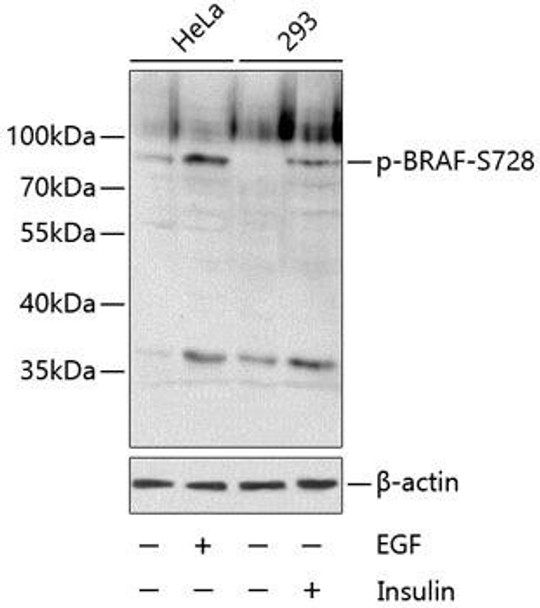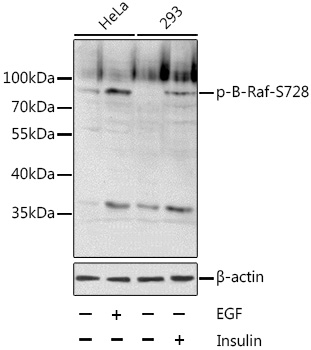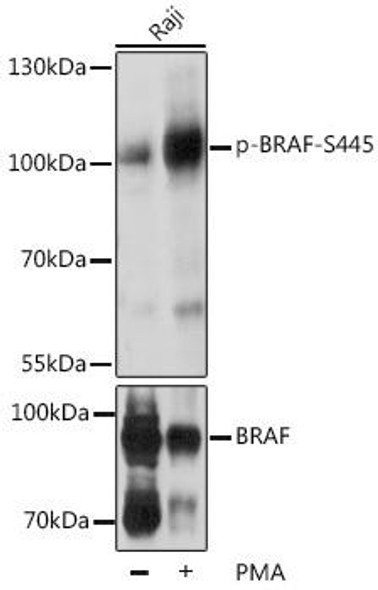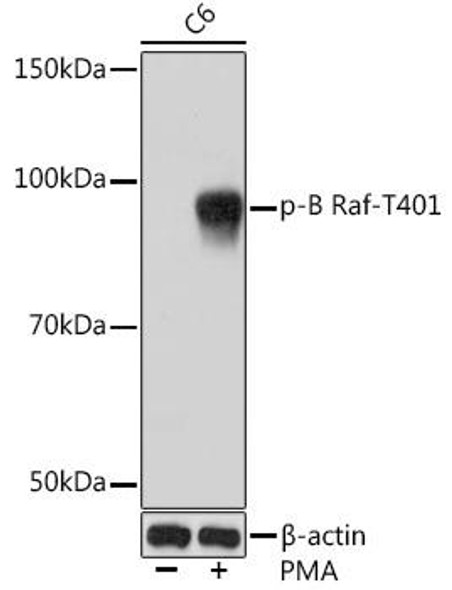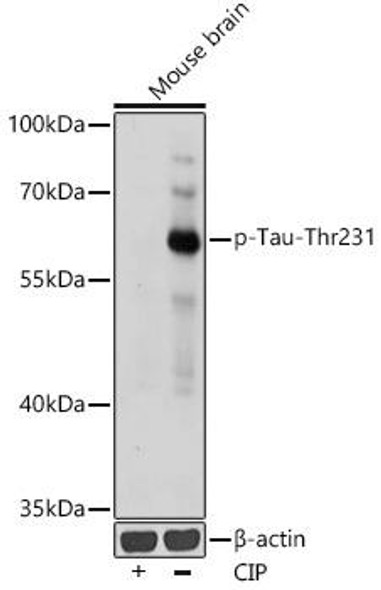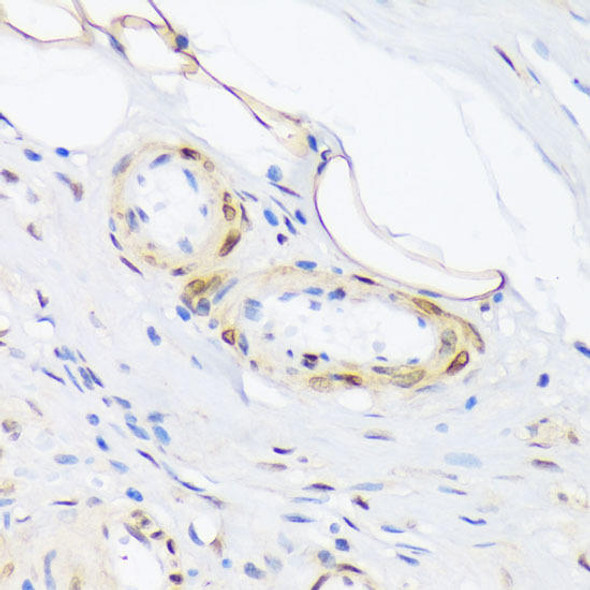Description
Phospho-B-Raf-S728 Rabbit Polyclonal Antibody (CABP0576)
The BRAF (Phospho S728) Polyclonal Antibody (CABP0576) is a valuable tool for researchers studying the phosphorylation of BRAF, a key signaling protein involved in cell growth and proliferation. This antibody, generated in rabbits, is highly specific for detecting phosphorylated BRAF at serine 728 in human samples, making it ideal for Western blot applications.Phosphorylation of BRAF at serine 728 is known to regulate the activity of BRAF and its downstream signaling pathways, impacting cellular processes such as cell cycle progression and apoptosis.
By detecting and monitoring the phosphorylation status of BRAF, researchers can gain insight into the mechanisms underlying cell signaling and potential therapeutic targets for diseases like cancer.With its high reactivity and specificity, the BRAF (Phospho S728) Polyclonal Antibody is a valuable asset for studies in cancer research and drug development, providing researchers with a reliable tool for investigating the role of BRAF phosphorylation in disease progression and treatment response.
| Product Name: | Phospho-B-Raf-S728 Rabbit Polyclonal Antibody |
| SKU: | CABP0576 |
| Size: | 20uL, 100uL |
| Isotype: | IgG |
| Host Species: | Rabbit |
| Reactivity: | Human |
| Immunogen: | A synthetic phosphorylated peptide around S728 of human BRAF (NP_004324.2). |
| Sequence: | SASE P |
| Tested Applications: | WB ELISA |
| Recommended Dilution: | WB,1:500 - 1:2000 |
| Synonyms: | NS7; B-raf; BRAF1; RAFB1; B-RAF1; BRAF-1; Phospho-B-Raf-S728 |
| Positive Sample: | HeLa,HeLa+EGF,293,293+Insulin |
| Conjugate: | Unconjugated |
| Cellular Localization: | Cell membrane, Cytoplasm, Nucleus. |
| Calculated MW: | 84kDa |
| Observed MW: | 86kDa |
This gene encodes a protein belonging to the RAF family of serine/threonine protein kinases. This protein plays a role in regulating the MAP kinase/ERK signaling pathway, which affects cell division, differentiation, and secretion. Mutations in this gene, most commonly the V600E mutation, are the most frequently identified cancer-causing mutations in melanoma, and have been identified in various other cancers as well, including non-Hodgkin lymphoma, colorectal cancer, thyroid carcinoma, non-small cell lung carcinoma, hairy cell leukemia and adenocarcinoma of lung. Mutations in this gene are also associated with cardiofaciocutaneous, Noonan, and Costello syndromes, which exhibit overlapping phenotypes. A pseudogene of this gene has been identified on the X chromosome.
| Purification Method: | Affinity purification |
| Gene ID: | 673 |
| Storage Buffer: | Store at -20℃. Avoid freeze / thaw cycles.Buffer: PBS with 0.02% sodium azide,50% glycerol,pH7.3. |

